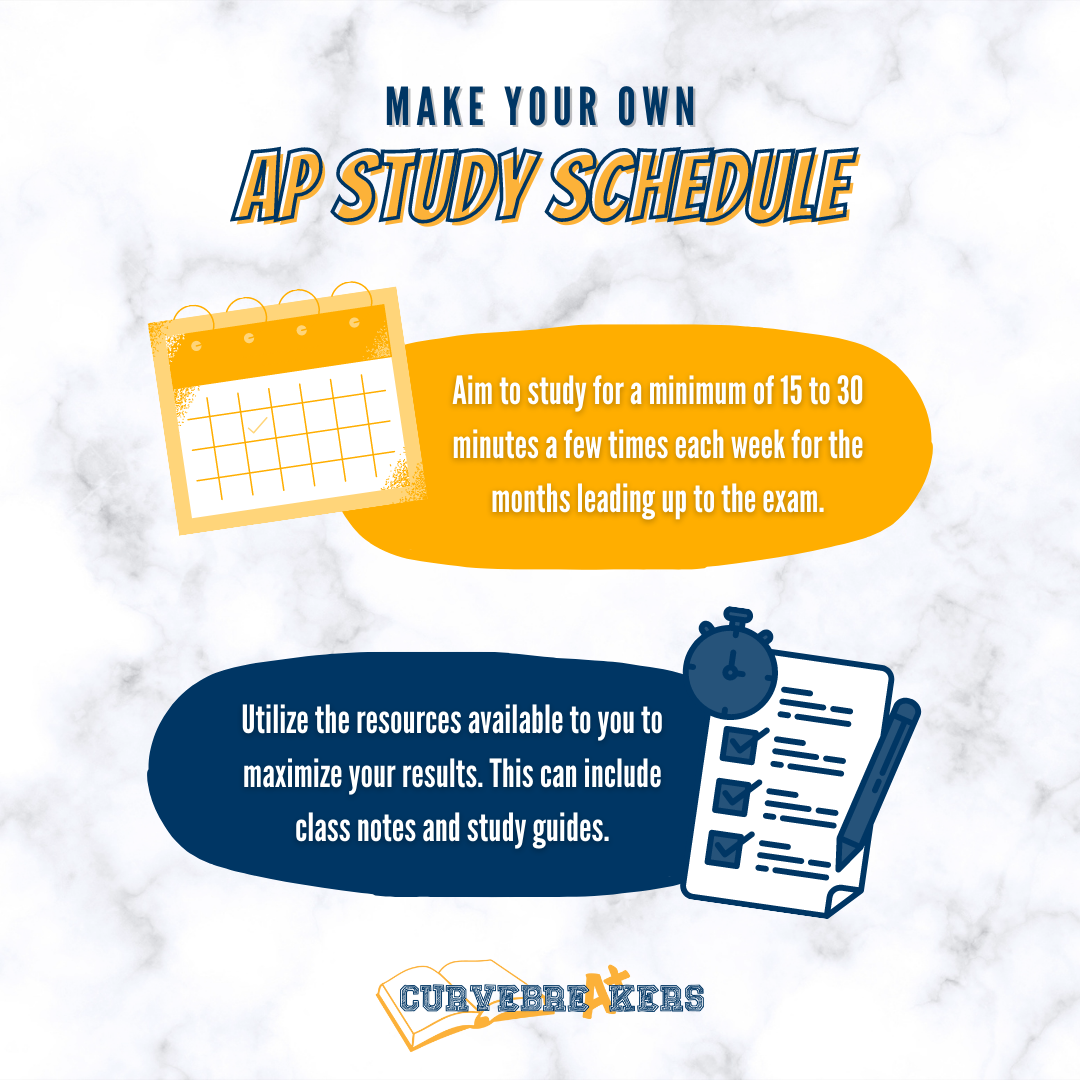Advanced Placement (AP) courses and exams are a way for students to boost their resumes and get into a great college. While preparing for your APs may seem a little bit challenging at first, creating a study schedule may make it a lot easier when it comes down to balancing school work and studying for the AP exams.
Format and Structure of the AP Exams
- Advanced Placement classes are college-level courses that expose high school students to the rigor of college work. Offered through the College Board, these exams occur once a year in May. There are now 38 exams of various subjects students may elect to take.
- These days, strong applicants take AP classes and exams for a competitive edge. Many students take anywhere from 5 to 10 APs during their high school years.
- A student’s high school will offer a varying amount of AP classes for them to take. The exam will occur at the end of the school year and scores the student’s proficiency on a scale of 1 to 5.
When and How Long to Study for Your AP Exams
- Since the AP exams pull from the schooling curriculum, students should study during the school year. Doing so allows students to focus on studying content they are currently learning in class instead of devoting a different set of notes to the AP exams.
- The College Board recommends that students study between 15 and 30 minutes per day a few times a week for a couple of months. Since the course curriculum is very similar to the material on the test, doing homework and studying for the test within the school year are effective ways to prepare for the exam while also making sure students do well in the course.
- Research also done by the College Board suggests that between six to eight hours of official AP practice per week can help get a student a 3 on their exam, which is a passing grade.
Best Ways to Study for Your AP Exams
- Using the recommendations from the College Board, students should pick at least three days in a week in which they will study the 15 to 30 minutes. Studying can include reviewing class materials and also taking official AP practice problems.
- Students should supplement daily studying with taking AP practice exams for the classes that they are taking. These can be purchased and taken on one’s own time, but the best option is to take it through a testing center such as Curvebreakers.
- The best part about making your own study schedule is that it does not have to be as rigid as taking an entire practice course. The student can determine when they study, what the focus is, and how long they’ll prepare.
Other Tips & Tricks
- As the day of the exam comes closer, students should start studying a little bit less in order to give the brain a little bit of a break. Research suggests that taking a break then in the final week can actually help with memory.
- Use weekends and holidays as extra time to study while school is not in session, especially for students taking multiple AP exams per year.
- Use a study guide made by a test-expert to ensure that you’re studying all the content covered on the exam.
Conclusion
- The best way to study for the AP exams is for a student to take control and put it into their own hands with the help of practice tests, paid tutoring, and supplemental resources.
- Making a plan or schedule and sticking to it allows for the freedom to change or tweak it when necessary while allowing students to get the most out of studying for a test as important as their AP exams.


